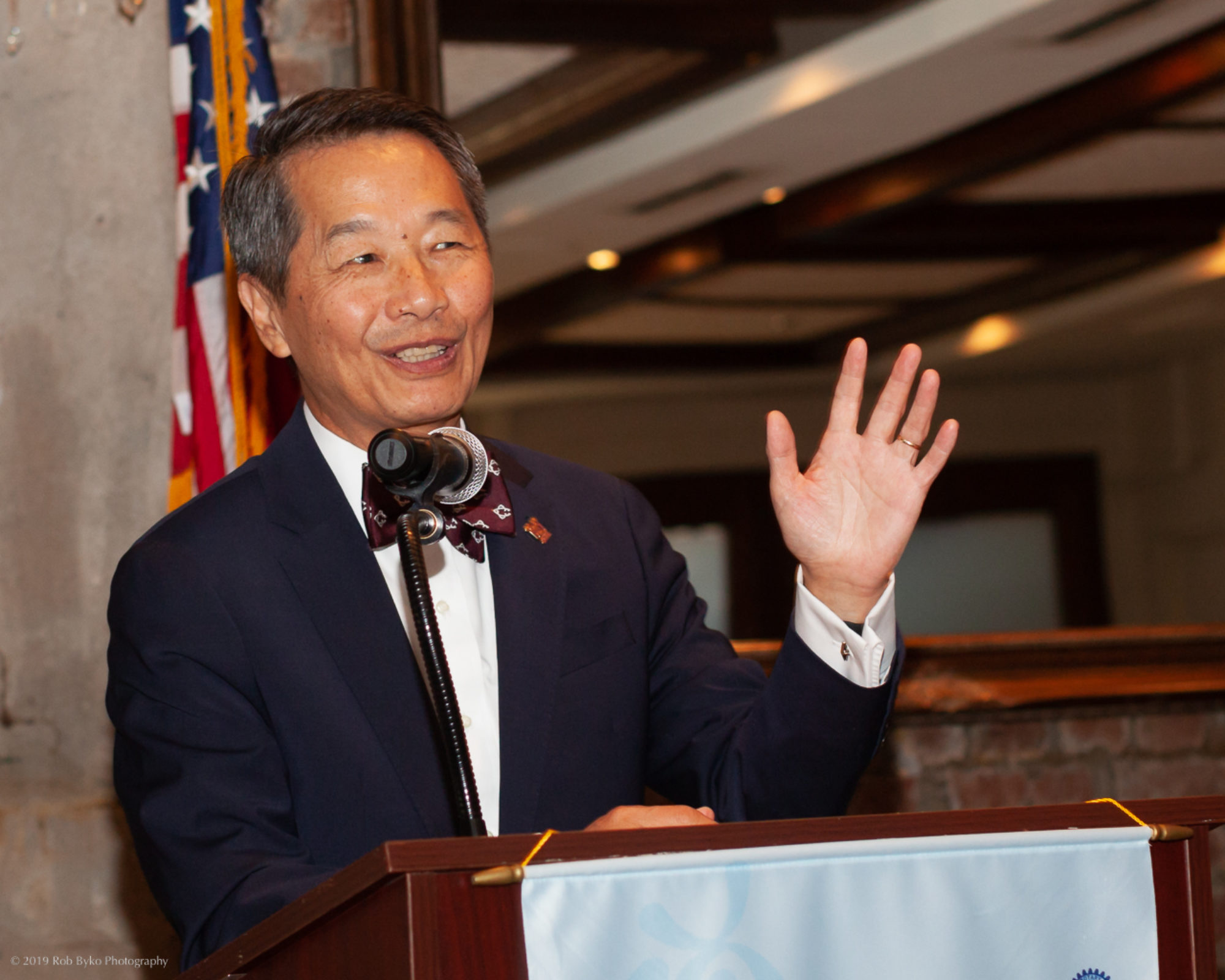November 3, 2015 – It was truly a pleasure for our club to host as our speaker this week a fellow Rotarian. David A. DeCenzo is a two-time Paul Harris Fellow and is the President of Coastal Carolina University. DeCenzo, who is only the second president of CCU, started his tenure as President in 2002 and during that time has spearheaded growth in undergraduate programs at the University from 39 to 67. He is the author of over 30 textbooks which are used throughout the world.
CCU was founded in 1993 and had its first graduating class in 1996. From 2002 to 2010 the student body grew by over 56%. Last year over 6% of the accepted students matriculated to the university a number which far exceeded matriculation rates of the past. While this is a testament to the positive work DeCenzo’s team has put forth in growing CCU, it did result in such an increase in student body that CCU’s student housing occupancy rate shot up to 137%! DeCenzo proudly mentioned that throughout this growth the university has maintained a 17 to 1 student to faculty ratio. The school has 437 full-time faculty members and when he began only had 130 or so. Seventy-nine percent of the faculty members have a doctoral or other terminal degree. There are two statistics of which DeCenzo is particularly proud. His university has been recognized as being one which is particularly military friendly and his university continues to be ranked among the 100 best buys in education in the nation.
DeCenzo stressed that in order to survive and thrive institutions of higher learning must be operated as businesses. As an example of his business-like approach to higher education, DeCenzo noted that he was able to avoid tuition increases for several years by cutting expenses. While such actions may be painful the competition in the area of higher education makes them necessary.
DeCenzo mentioned that some studies he has seen suggest that by 2035 one half of the colleges currently operating in the United States will no longer be in business. While his faculty members often do not like to use the term “customer” for students, DeCenzo says it is important for institutions to meet the expectations and needs of their students. DeCenzo believes CCU meets or exceeds student expectations across a broad spectrum of the programs by ensuring that the programs offered by the university represent not just programs which are offered by sister institutions, but programs which meet the very practical needs of employers. The doctoral program in marine science at CCU is known internationally. Ninety-nine percent of CCU’s MBA students are successfully placed with employment, generally before they graduate. Between 60% and 70% of Horry County teachers have either an undergraduate or graduate connection with CCU.
DeCenzo was quick to point out that local support for CCU has been a vital component of the university’s growth. Horry County has a penny sales tax which has allowed CCU to fund a great deal of expansion to its physical plant. Projects begun in the last four years and to be completed over the next two years or so will add $300 million to the university’s campus structures. That both Horry County and the State of South Carolina benefit from this investment is evidenced by the fact that CCU provides an annual economic benefit to the state of over $500 million. Over $400 million of that economic benefit is seen in Horry County. Even though CCU is a state university, very little of its annual budget is funded by the state. DeCenzo noted that only 4.9% of his annual budget comes from state funds. To put this in perspective, he noted that, since his annual budget year begins on July 1 each year, he uses up his state funding by July 26.
— Alex Dallis, Keyway Committee


